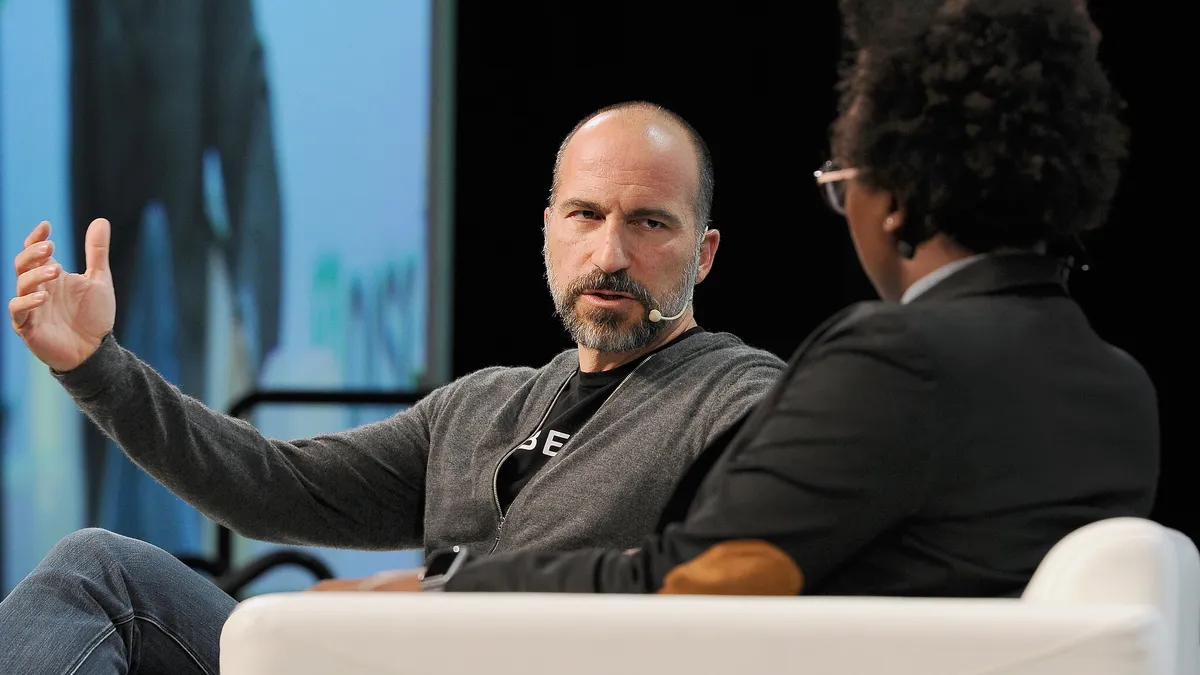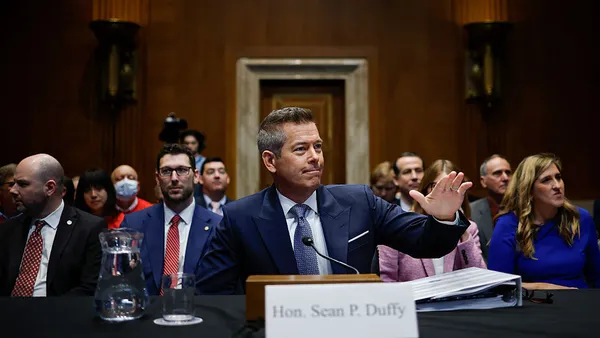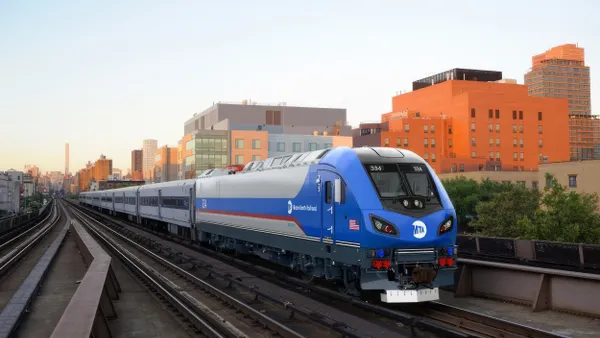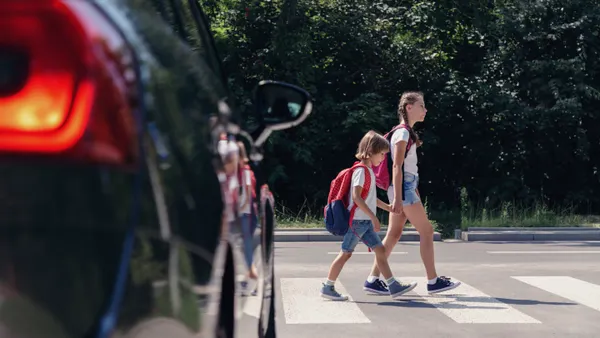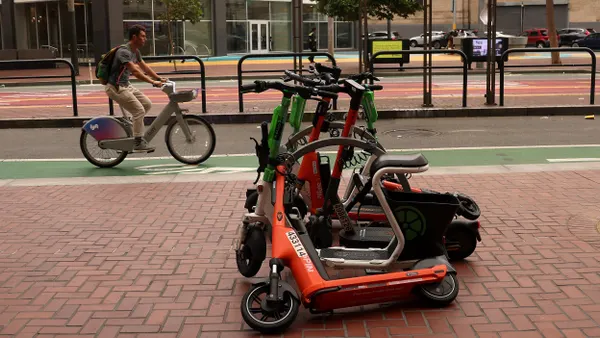Dive Brief:
-
Uber CEO Dara Khosrowshahi announced in an email to staff on Monday that it is closing 45 offices and laying off an additional 3,000 workers, the Wall Street Journal reports.
-
The news follows a May 7 announcement that Uber would eliminate 3,700 workers in an effort to save more than $1 billion in fixed costs, all to help the company achieve profitability in 2021. The cut of an additional 3,000 workers means Uber has shed about 25% of its workforce so far in May.
-
The transportation giant said it is looking to cut back on "noncore businesses" like its product incubator and artificial intelligence lab, and is considering changes to its freight and autonomous driving businesses, the Journal reports.
Dive Insight:
This was supposed to be the year that Uber embarked on its path to profitability, yet that plan was completely upended by the COVID-19 pandemic. Revenues from the company's ride-hailing business, which was responsible for about three-quarters of its revenue before the pandemic, fell 80% in April compared to the year prior.
Uber's recent layoffs, office closures and reevaluations of operations could stand to impact several different industries the company has a hand in, including freight, restaurants, micromobility and the sharing economy at-large.
Uber is reportedly considering a merger with GrubHub, which could save the companies up to $300 million in costs. However, there’s no guarantee that regulators would approve such a deal — and some politicians have already voiced their opposition. House Antitrust Subcommittee Chairman David Cicilline, D-RI, said in a statement that the company's attempt to acquire Grubhub "marks a new low in pandemic profiteering."
Uber also recently invested $85 million in micromobility company Lime. The deal folded Uber's JUMP e-bike and e-scooter arm into Lime’s operations, in an effort to streamline the rider experience and offer a variety of transportation options to Uber customers.
"Cities realize that coming out of COVID, there’s going to need to be new options that allow for open-air and socially-distanced travel," Lime's Chief Policy Officer David Spielfogel told Smart Cities Dive in a recent interview. "There’s no doubt in my mind that bikes and scooters are going to play a very central role in that. We see this as a massive opportunity."
Targeted relationships with city government, transit authorities and planners will be key for Uber to mitigate the effects of the pandemic, according to Matt Curtis, founder of government advisory firm Smart City Policy Group.
"By trimming down their workforce, Uber is not going to be at the table to the degree they should ... Cities are looking for Uber to be part of the solution and without a presence and without a product actively in the community, they are not going to be part of the community conversation," Curtis told Smart Cities Dive.
He suggested investing in its workforce to maintain a strong presence in cities would have been "a better path" for Uber.
At least one category of Uber's workforce — ride-hailing drivers — will not be impacted by layoffs. California recently sued Uber and Lyft over the way it classifies drivers among its workforce, claiming the "misclassification of drivers as independent contractors deprives the drivers of rights such as paid sick leave and unemployment insurance — issues that became front-and-center during the pandemic," the Wall Street Journal reports.
Yet the pandemic has still taken a toll on Uber drivers and other gig workers. "There is increasing evidence that they are among the hardest hit economically by this crisis," Bloomberg Associates Economic Development Lead Gordon Innes told Smart Cities Dive via an email statement.
"Cities such as Atlanta and New Orleans have created public-private relief funds to provide grants for food, housing, utilities, medical expenses and transportation costs," he said. "In addition, some workers may be able to move to other platform companies, not necessarily in the sharing economy, which are seeing a surge in demand due to COVID-19, such as Instacart, GrubHub and Doordash."



